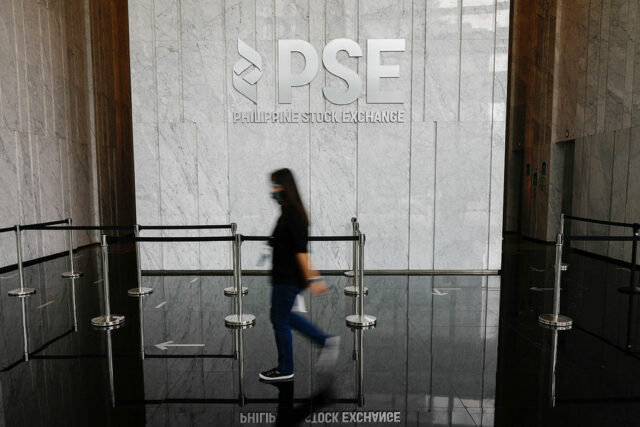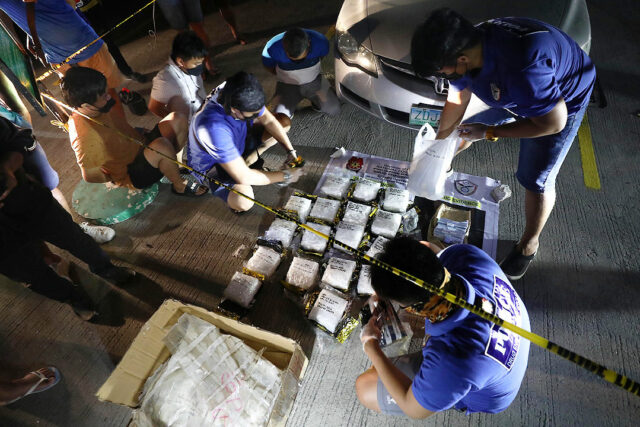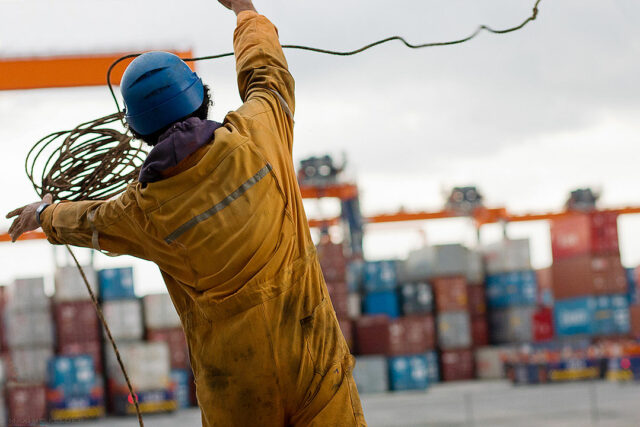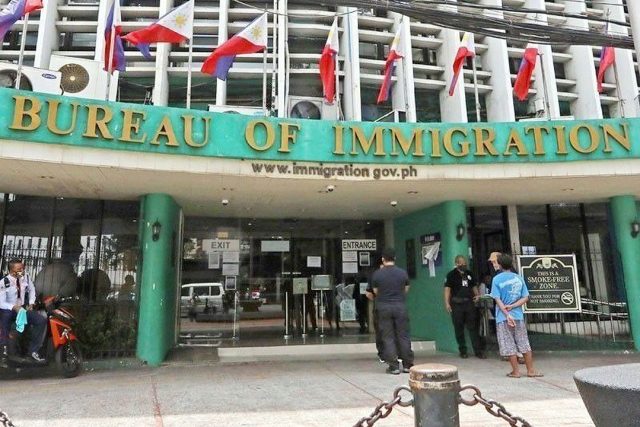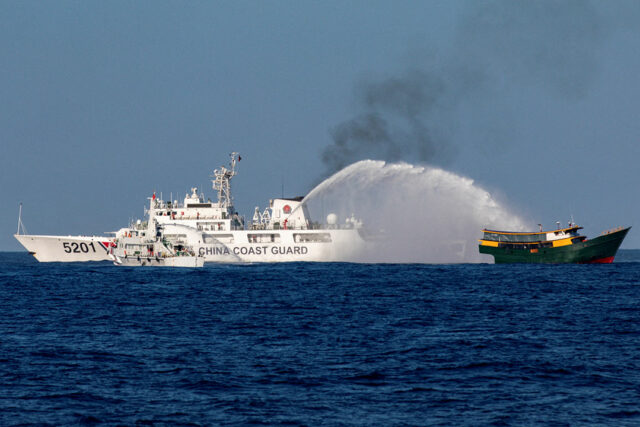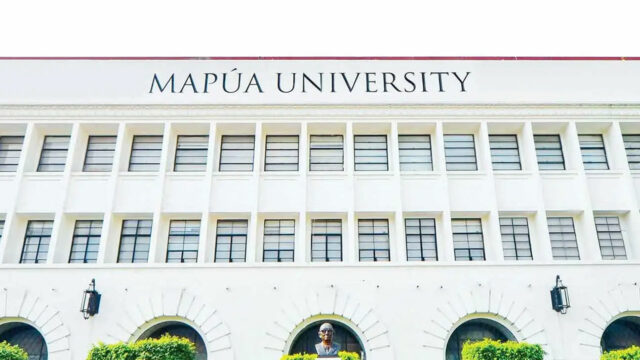PHL shares may rise after BSP policy easing hints
PHILIPPINE STOCKS could rise this week following the Bangko Sentral ng Pilipinas’ (BSP) decision to maintain its benchmark interest rates for a fifth straight meeting and hints on a rate cut as early as August.
On Friday, the benchmark Philippine Stock Exchange index (PSEi) fell by 0.14% or 9.51 points to end at 6,618.69, while the broader all shares index declined by 0.01% or 0.37 point to close at 3,524.15.
Week on week, however, the PSEi rose by 1.64% or 106.76 points from its 6,511.93 close on May 10.
“As expected, local interest rates were kept unchanged, but ‘less hawkish’ comments roused some positive energy in what [was] mostly a range-bound week,” online brokerage firm 2TradeAsia.com said in a market note.
The Monetary Board on Thursday left its target reverse repurchase rate unchanged at a 17-year high of 6.5%, as expected by 17 out of 19 analysts in a BusinessWorld poll. Interest rates on the overnight deposit and lending facilities were likewise kept at 6% and 7%, respectively.
BSP Governor Eli M. Remolona, Jr. said after the meeting that they are now “somewhat less hawkish than before” and could cut rates by the third or fourth quarter of this year. He said they expect one or two 25-basis-point rate cuts within the second semester.
The policy-setting Monetary Board’s only meeting for the third quarter is scheduled on Aug. 15. Meanwhile, in the fourth quarter, it will hold reviews on Oct. 17 and Dec. 19.
The BSP’s policy decision and comments could push Philippine stocks higher this week, Philstocks Financial, Inc. Senior Research Analyst Japhet Louis O. Tantiangco said in a Viber message.
“The prospects of a possible rate cut by the BSP as early as August following their less hawkish stance in their latest meeting may also give sentiment a boost next week. With these, the market could move with an upward bias,” Mr. Tantiangco said.
“Looking at the bigger picture, however, the market has been moving sideways since mid-April, showing investors’ indecisiveness as they weigh hopes against lingering risks in the market. At its current level, the local market is still deemed to be attractive. Hence, episodes of bargain hunting are still possible in [this] week’s trading,” he added.
Mr. Tantiangco placed the market’s support at 6,400 and resistance at 6,700.
Meanwhile, Rizal Commercial Banking Corp. Chief Economist Michael L. Ricafort put the PSEi’s one-month support at 6,540 and major resistance at 6,740-6,820.
2TradeAsia.com placed the PSEi’s immediate support at 6,400, primary resistance at 6,700, and secondary resistance at 6,800.
“The volatile week has been hard carried by mixed earnings plus speculation on how solid a pivot by third quarter could be: a test of grit until the Fed (US Federal Reserve) and ultimately, the BSP, eventually bring rates back down to earth,” the online brokerage said. — Revin Mikhael D. Ochave
Peso may be range-bound as market eyes Fed meet minutes
THE PESO may trade sideways against the dollar this week as the market awaits the release of minutes of the US Federal Reserve’s policy meeting this month for more leads on their future policy path.
The local unit closed at P57.62 per dollar on Friday, weakening by 15.5 centavos from its P57.465 finish on Thursday, Bankers Association of the Philippines data showed.
Week on week, the peso likewise depreciated by 20 centavos from its P57.42 finish on May 10.
The peso weakened against the dollar on Friday due to hawkish comments from the Fed from the previous day, Security Bank Corp. Chief Economist Robert Dan J. Roces said in a Viber message.
The dollar retreated against major currencies on Friday as market speculation continues to swirl about the timing of Federal Reserve interest rate cuts amid signs of cooling yet persistent inflation and a softening US economy, Reuters reported.
While consumer prices for April, reported on Wednesday, rose less than expected — leading to a risk-on flavor in equity markets — various Fed officials have sounded words of caution about when rates may fall, limiting the dollar’s decline last week.
The dollar index, which tracks the US currency against six peers, slid 0.04% to 104.44 after earlier trading about 0.3% higher.
Fed policy makers said on Thursday that still-high inflation warrants keeping rates at current levels, and that reaching the Fed’s 2% inflation target will take longer than previously thought.
Less hawkish comments from the Bangko Sentral ng Pilipinas (BSP) also dragged down the peso, Rizal Commercial Banking Corp. Chief Economist Michael L. Ricafort said in a Viber message.
BSP Governor Eli M. Remolona, Jr. last week said the Monetary Board could begin their easing cycle with a cut worth 25 basis points (bps) as early as their Aug. 15 policy meeting, adding that he expects one or two rate cuts within the second semester.
The Monetary Board kept its target reverse repurchase rate at a 17-year high of 6.5% for a fifth straight meeting on Thursday, as expected by 17 out of 19 analysts in a BusinessWorld poll. Interest rates on the overnight deposit and lending facilities were likewise kept at 6% and 7%, respectively.
The central bank raised borrowing costs by a cumulative 450 bps from May 2022 to October 2023.
For this week, Mr. Ricafort said the peso will move depending on the minutes of the Fed’s policy meeting this month, which will be released on May 22, Wednesday.
“Economic data and comments from central bank officials will remain as catalysts,” Mr. Roces added.
The US central bank this month kept the fed funds rate unchanged at the 5.25%-5.5% range for a sixth straight meeting.
The Fed hiked interest rates by 525 bps from March 2022 to July 2023.
Mr. Ricafort sees the peso moving between P57.30 and P57.80 per dollar this week, while Mr. Roces expects it to range from P57.20 to P57.50. — A.M.C. Sy with Reuters
Philippines told to buck China detention rule vs ‘trespassers’ in South China Sea
By Kyle Aristophere T. Atienza, Reporter
A CHINESE rule allowing its coast guard to detain foreigners crossing what it considers its borders could be a “hostage policy” meant to weaken Philippine resolve to defend its claims in the South China Sea, geopolitical experts said at the weekend.
There is a “very real possibility” now that its coast guard could detain a Filipino fisherman for one or two months, which could lead to a “serious diplomatic and humanitarian crisis,” said Raymond M. Powell, a fellow at Standford University’s Gordian Knot Center for National Security Innovation.
“Beijing may decide to do such a thing simply to test the Marcos administration’s resolve or deter future assertions of its maritime rights,” he said in an X message. “This would create a form of hostage diplomacy in which Beijing holds a mariner and then demands concessions.”
The Chinese Embassy in Manila did not immediately reply to a Viber message seeking comment.
China’s new policy, which the Philippine Coast Guard said is illegal, allows its coast guard to detain foreigners it suspects of violating its exit-entry rules including in disputed areas of the South China Sea for up to 60 days without a trial.
Foreign vessels may be seized, and foreigners detained if they are accused of illegal entry and exit, of helping others “to illegally enter and exit the country,” and of “endangering national security and interests.”
“The new policy will restrict fishing, scientific research and commercial activities by other nations in contested waters, effectively extending China’s control without resolving underlying disputes,” Randy M. Tuaño, dean of the Ateneo de Manila University School of Government, said in a Facebook Messenger chat.
“The policy certainly undermines international law, including the 2016 Permanent Court of Arbitration ruling favoring the Philippines,” he added.
The United Nations-backed tribunal voided China’s claim to more than 80% of the waterway, including areas that fall within the Philippines’ exclusive economic zone (EEZ).
Tensions between the Philippines and China have worsened in the past year as Beijing continues to block Manila’s resupply missions to Second Thomas Shoal, where Manila grounded a World War II-era ship in 1999 to assert its sovereignty.
The Chinese Coast has on many occasions fired water cannons and used dangerous maneuvers to block the Philippines’ missions within its exclusive economic zone.
The government should call on its international partners including the US, Japan and Australia to oppose the Chinese policy, Senator Ana Theresia N. Hontiveros-Baraquel said in a statement.
“Should Beijing dare push through with this illegitimate regulation, the Philippines’ hand may be forced to sue them again in the Hague tribunal,” she said. “China, better abrogate this shameless policy. China, better stop inciting violence in our waters. China, better leave the West Philippine Sea alone.”
Joshua Bernard B. Espeña, vice-president of Manila-based International Development and Security Cooperation, said China’s detention policy could weaken Philippine efforts to civilianize its EEZ.
“This call for arrests will certainly jeopardize the safety of Filipino citizens lawfully faring in the area,” he said via Messenger chat.
A civilian flotilla of Filipino activists on Thursday failed to sail closer to Scarborough Shoal in the South China Sea, avoiding a clash with dozens of Chinese Coast Guard and militia vessels patrolling the area.
Still, the Atin Ito civic coalition called its mission to the shoal a success after it managed to distribute food packs and about 1,000 liters of fuel to Filipino fishermen about 50 kilometers away from Scarborough.
Mr. Powell urged the government of President Ferdinand R. Marcos, Jr. to raise China’s detention policy with Southeast Asian nations and Philippine allies “and make it clear that such hostage diplomacy must never be practiced or tolerated by civilized nations.”
“He’ll have the perfect opportunity to do so in two weeks when he will be the keynote speaker at the Shangri-La Dialogue in Singapore,” he added.
Mr. Espeña said the Association of Southeast Asian Nations is “unlikely to join the Philippines until the Chinese make certain arrests.” “We cannot expect everyone to be on board.”
Mr. Tuaño said the Philippines should continue to reinforce its position as a rule-of-law advocate and garner support from the international community.
It should also boost ship patrols in coordination with allies to “protect its waters while avoiding direct confrontations.”
“Issuing formal diplomatic protests and engaging in international forums to highlight the risks associated with China’s policy could be undertaken,” he added. — with John Victor D.Ordoñez
Marcos panel on human rights unlikely to make a difference — analysts
By Kenneth Christiane L. Basilio
A SPECIAL panel formed by Philippine President Ferdinand R. Marcos, Jr. to address human rights issues in the Philippines is unlikely to make a difference since it is dominated by agencies with a poor track record on human rights, according to Human Rights Watch.
The presidential order is “at first glance… admirable,” Carlos H. Conde, a senior researcher at the Asia division of Human Rights Watch, told BusinessWorld via e-mail.
“But it is led and dominated by agencies of government that not only have questionable or poor record of human protection; some of them were responsible for the very same human rights abuses that we’ve seen since 2016,” he added.
Under Administrative Order No. 22 signed on May 8, the Special Committee on Human Rights Coordination will fine-tune the investigation and data-gathering on human rights violations by law enforcement agencies.
The body is co-headed by the executive secretary and Justice secretary. Its members include the Foreign Affairs and Interior and Local Government secretaries.
Mr. Conde said the Interior and Justice departments have not done a lot in holding to account those who perpetrated abuses during ex-President Rodrigo R. Duterte’s deadly war on drugs.
Both agencies did not immediately reply to an e-mail and Viber message seeking comment.
Ephraim B. Cortez, president of the National Union of People’s Lawyers, said the human rights body won’t be helping prosecute officials accused of human rights violations.
“The [human rights body] adopted the focus areas of the United Nations Joint Program (UNJP) on human rights, and one of the criticisms against UNJP is it lacks a mechanism for accountability,” he said in a Viber message.
The panel was probably created to improve the Philippine image in the international community, he added.
Arjan P. Aguirre, who teaches political science at the Ateneo de Manila University, said the panel is an attempt to make it look like the government is serious about resolving human rights violations.
“The creation of the ‘super body’ is something that many don’t really recommend or suggest in addressing the longstanding and problematic human rights situation in our country,” he said in a Facebook Messenger chat.
He also said it could be used against opposition figures.
“If the body’s main objective is to control the discourse of who is entitled to human rights or not — essentially a resurrection of the national task force against communists — only this time, it is under the president’s control, it’s going to be ludicrous,”Hansley A. Juliano, a lecturer at the Ateneo de Manila University’s Department of Political Science, said via Messenger chat.
La Union Rep. Francisco Paolo P. Ortega V said the human rights panel is a step in the right direction.
The President’s anti-illegal drug policy is “a huge step in the right direction compared with other administrations,” he said in an interview.
Mr. Conde noted that while the country’s human rights situation seems to have improved, it is not due to Mr. Marcos’ human rights policy but because Mr. Duterte’s drug war has ended.
“[Mr. Duterte[ set the bar so low that even if [Mr. Marcos] doesn’t do anything, the situation would definitely look improved.”
Almost 9,000 Filipinos died under Mr. Duterte’s war on drugs, according to a 2020 report by the United Nations (UN) Office of the High Commissioner for Human Rights. Philippine human rights groups estimate that as many as 30,000 drug suspects died.
23 seamen safe after Houthi strike
THE DEPARTMENT of Migrant Workers (DMW) on Sunday said all 23 Filipino seamen aboard a Panama-flagged oil tanker that was attacked by a drone controlled by Iran-backed Houthi rebels off Yemen’s Red Sea coast at the weekend were safe.
In a statement, the agency said the ship was only slightly damaged as it was sailing close to the Yemeni port city of Hodeida. “The vessel is continuing on its journey to its next port of call.”
“The DMW is closely coordinating with international maritime authorities, shipping companies and local manning agencies on the status of ships with Filipino seafarers traversing high-risk areas and war-like zones in the Red Sea and the Gulf of Aden,” it added.
The Houthi rebels shot a single anti-ship missile at the M/T Wind, a Panamanian-flagged and Greek-owned oil tanker on Saturday, causing flooding that knocked out its propulsion and steering, the US Central Command said in an X post on Saturday.
Last month, the DMW stopped the deployment of Filipino seafarers on passenger and cruise ships to the Red Sea and Gulf of Aden amid recent attacks by Houthi rebels.
Under DMW Order No. 2, Filipino seafarers and manning agencies must sign an affirmation letter guaranteeing that vessels do not pass through these areas.
The agency earlier required commercial vessels to register a “significant event” when they sail through the areas after two Filipino seafarers died aboard an Israel-linked bulk carrier after a Houthi missile attack in March.
In November, Houthi rebels seized an Israel-linked cargo ship in the Red Sea and took 17 Filipino seamen hostage. Houthi military spokesman Yahya Saree had said the seizure was in response to “heinous acts” against Palestinians in Gaza and the West Bank. — John Victor D. Ordoñez
Australian nabbed for drugs
THE BUREAU of Immigration (BI) in Cebu City has arrested an Australian man, an alleged member of the Mexican Sinaloa drug cartel, for drug trafficking.
In a statement, Immigration Commissioner Norman G. Tansingco said the man has a standing red notice from the International Police for a criminal case in Indonesia.
The Australian was detained in Taguig City pending deportation proceedings.
The National Narcotics Board of Indonesia on Jan. 29 issued an arrest warrant against the fugitive for drug smuggling.
Indonesian authorities accused the man of trying to smuggle a shipment of floor ceramics filled with more than five kilos of crystal meth. The package is said to have come from Guadalajara, Mexico. — Chloe Mari A. Hufana
Resins pioneer dies at 95
BUSINESSMAN Meneleo J. Carlos, Jr., a pioneer at Philippine chemical group Resins, Inc., died on May 17 at 95, the company said in a statement at the weekend
Mr. Carlos took over Resin after his father and founder Meneleo Carlos, Sr. retired in 1980.
Aside from leading Resins, he also held top positions at the Federation of Philippine Industries, Philippine Chamber of Commerce and Industry and Bishops-Businessmen’s Conference for Human Development.
He also participated in state-led multisectoral bodies including the negotiating panel for the Bataan Nuclear Power Plant, Council of Advisers of Energy Affairs and Committee on Power Conservation and Demand Management.
“He was recognized as the grandfather of the roll-on/roll-off project that facilitates seamless movement of people and goods from Mindanao to Luzon through Visayas,” Resins said. — Justine Irish D. Tabile
Cotabato grenade blast hurts 2
COTABATO CITY — A grenade blast ripped through a Catholic chapel in the village of Rosary Heights 3 here on Sunday morning, hurting two people and causing panic among villagers.
One of two men on a motorcycle pulled over the church entrance and hurled a grenade before running away, Colonel Querubin L. Manalang, Jr., Cotabato City police director, told reporters.
The victims were brought to a nearby hospital
The explosion caused panic among mixed Muslim and Catholic residents in Purok Silangan. — John Felix M. Unson
Diplomatic mission to China urged
THE PHILIPPINES should consider sending a special envoy to China to discuss with ranking Chinese diplomats ways to ease tensions between the two nations over their sea dispute, a congressman said Sunday.
The diplomatic mission should also seek to stop the Chinese Coast Guard’s aggressive maneuvers against Filipino vessels in the waterway, Bukidnon Rep. Jonathan Keith T. Flores said in a statement.
“To defuse the diplomatic and military tensions with China, I suggest sending a special envoy to talk with ministers and officials of China’s Foreign [Ministry], the military and the coast guard,” he added. — Kenneth Christiane L. Basilio
No decision yet on light vehicles
THE METROPOLITAN Manila Development Authority (MMDA) said there’s no advice yet on when it would resume issuing tickets to light electric vehicles that pass through major roads in the National Capital Region (NCR) after the one-month grace period ordered by President Ferdinand R. Marcos, Jr. expired on Sunday, May 19.
The President on April 18 ordered the suspension of the MMDA rule that barred light electric vehicles from using major roads in the capital region, citing the need for information dissemination.
The MMDA enforced the crackdown starting April 15 but started issuing tickets and impounding vehicles on April 17.
Ira F. Cruz, a transport advocate and director of AltMobility PH, said the MMDA has wasted the one-month grace period.
“Unfortunately, MMDA seems to have wasted the last month for failing to conduct additional conversations with stakeholders,” he said in a Viber message. “It’s very important for the MMDA to have an open mind on inputs from the public to ensure that they can craft a policy that addresses the basic mobility needs of Filipinos.” — Chloe Mari A. Hufana
Mapúa launches streaming platform for education
by Patricia Mirasol, Producer
Mapúa University launched on May 15 Mapúa X, its streaming platform for education.
The platform offers courses in subjects including technology, engineering, and creative arts, with video lectures, interactive simulations, and real-time feedback embedded in each.
Mapúa X caters to both traditional students and lifelong learners, according to university president Dodjie S. Maestrecampo.
“Workplaces are searching for agile, entrepreneurial professionals who can quickly adapt and pivot in a very competitive and dynamic economy,” he said in a May 16 press statement.
“To meet that demand, we had to move beyond traditional learning methods and adopt new approaches that will better prepare students for these volatile work environments,” Mr. Maestrecampo said.
The university partnered with Anthology, an education technology company, to build the platform.
“Our collaboration with Anthology allows us to use a training and development manager approach built within a robust LMS [learning management system] platform,” Mr. Maestrecampo said. This enables students to remotely self-enroll in courses and earn credentials, he added.
Accessibility features have been added to the platform, according to Ericson D. Dimaunahan, director of the university’s Center for Teaching and Learning – Digital.
“Content can be converted into the desired file format,” he said at the May 15 event. “For example, our text formats can be converted to e-Braille [a formatted document that can be read on an electronic Braille machine] … We have transcription for video content too.”
Academic learning is a given within a campus, “but also important is a student’s holistic wellbeing and growth,” said Samuel Tang, Anthology’s country manager for the Philippines.
“What we want to focus on right now is the area of teaching and learning,” he said at the same event. “I think the concept of lifelong learning, and of providing continuing education in a bite-sized manner, where courses can be stacked, [is a part of that].”




